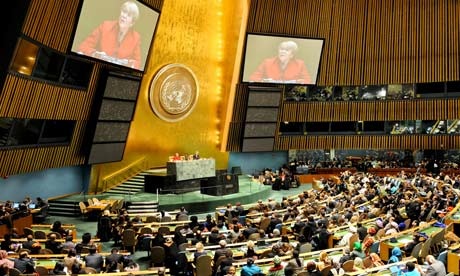As a United Nations commission debates violence against women, the Holy See has found itself lumped together with Iran and Russia as alleged opponents of efforts to reduce such violence.
The reason is that these states oppose a strong drive to use the issue of violence against women as a means to establish abortion in rape cases as a right of reparation under humanitarian law.
Similar negotiations by the Commission on the Status of Women last year failed to reach consensus, because of disagreement over “reproductive rights”, a term closely associated with abortion. This means there is exceptional pressure this year to reach agreement.
At a press conference, commission head Michelle Bachelet signalled she was willing to accept compromise, and even exclude the term if it meant reaching agreement. Nevertheless, at a later event she moderated she employed the term when she had the chance.
According to the Catholic Family & Human Rights Institute, however, the real issue is a proposal from African nations.
Last year the United States and European delegations did not want a document that gave any latitude to sovereign states in implementing the commission’s policies.
This year African nations have again put forth similar language, recognising the sovereign right of countries to implement policies in accordance with their own traditions, religions, and cultures. This has been common language throughout the history of UN social policy negotiations.
The proposed paragraph also states that tradition, religion and culture cannot be used to defend human rights abuses. Bachelet seemed to echo the paragraph when she told reporters, “culture, tradition or religion should not be used as an excuse, because no culture or religion really supports violence against women”.
For its part, the Holy See has staked out some broad human rights positions.
For example, it is arguing for a right to basic health care in situations involving violence against women and men; a global agreement to oppose forced sterilisation and abortion; special assistance to women migrants, even if they are undocumented; and protection of women’s freedom of religion, belief, conscience and thought.
Sources:
Catholic Family & Human Rights Institute
Catholic Family & Human Rights Institute
Image: The Guardian
Additional readingNews category: World.




